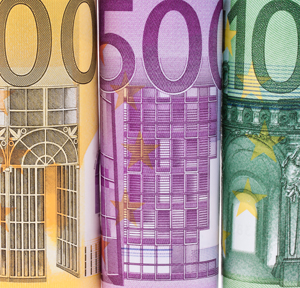ECB[/tag has increased its
deposit rate by another 75 basis points to 1.5 per cent, reaching
its highest level since 2009.
The Governing Council expects further hikes, to ensure the
timely return of inflation to its 2 per cent medium-term
inflation target, the ECB said in a statement.
The central bank also scaled back support for European banks.
It changed the terms and conditions of its targeted long-term
refinancing operations, which provide European banks with
attractive borrowing conditions. As a result, the euro
fell and European government bond slid, which was in keeping
with market expectations.
Here are some reactions from investment managers to the news.
Neil Birrell, CIO and fund manager of Premier Miton
Investors
The ECB increased rates to 1.5 per cent, exactly as expected,
and has said they are going higher, which shouldn’t be a
surprise given that inflation is almost 10 per cent. Central
banks everywhere will be looking at the economic data and will
make decisions accordingly. They won’t want to overdo it and
damage their economies more than they have to. But, let’s be
clear, inflation is the primary fear, not recession, and
beating it is the most important battle to win. For now, it’s
difficult to see what level the ECB will see peak rates
reaching.
Gurpreet Gill, macro strategist of global fixed income
at Goldman Sachs Asset Management
Investor focus will now turn to long-run inflation expectations
in the ECB’s Survey of Professional Forecasters (SPF), expected
on Friday, for evidence of second-round inflation effects.
Recently, the survey has shown long-run inflation expectations
at a record high of 2.2 per cent. Further strength in inflation
or inflation expectations could prompt the ECB to maintain its
aggressive approach at the next meeting in December with a
further 0.75 per cent rate rise. Our current expectation
is for a 0.5 per cent increase, in anticipation of further
signs of a slowdown and given the ECB believes it has already
‘made substantial progress’ in withdrawing policy
accommodation.
Hussain Mehdi, macro & investment strategist at HSBC
Asset Management
With inflation still close to double digits and policy not yet
restrictive, the ECB is clearly under pressure to deliver jumbo
rate hikes even in a backdrop of contracting economic activity
and a lurch into recession. With risks remaining elevated,
near-term catalysts to unlock value in European equities remain
unlikely, but with cooling inflation, lower gas prices, and
easing of supply-chain bottlenecks, this opens up room for a
policy pivot in early 2023 that could usher in a period of
better market performance.
Charles Hepworth, Investment Director, GAM
Investments
With Eurozone inflation last month hitting close to five times
the ECB target, at 9.9 per cent, it was all but guaranteed that
they would hike aggressively by 0.75 per cent today - doubling
the Deposit Facility Rate to 1.5 per cent. In addition, the
Governing Council’s accompanying statement committed to raising
rates further at future meetings, given inflation remains far
too high. Where the ECB terminal rate gets to, perhaps a year
from now, is still dependent on underlying inflation. Markets,
for their part at least, are pricing in an almost doubling in
rates from here.
